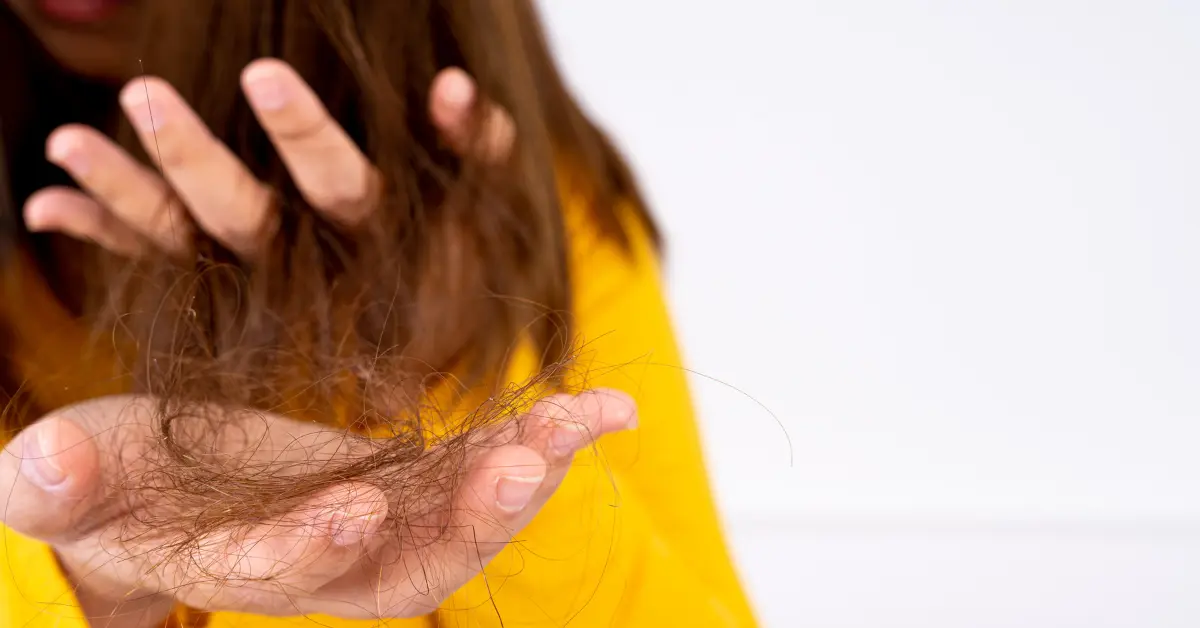DHT Blocker for Women: Exploring Your Options
One of the major causes of Female Pattern Hair Loss is DHT which affects about 40% of women by the age of 50.
Fortunately, advancements in medical science have led to the development of DHT blockers specifically designed to address this issue.
There are plenty of DHT blocker options for men, but is there a DHT blocker for women?
Read along to find out how DHT causes hair loss and the available treatment options.
Understanding DHT and hair loss
DHT is derived from Testosterone.
Both Testosterone and DHT are Androgen hormones present in both men and women (higher levels in men).
They are responsible for various processes in the body, including hair growth on the body and scalp.
However, it can also lead to hair loss.
About 10% of the Testosterone present in the body of all adults is converted into DHT.
The DHT then attaches itself to the receptors on hair follicles on your scalp and causes them to shrink.
This affects the hair growth cycle and makes your hair thinner and fall out faster.
DHT can also slow down new hair growth after the old ones have fallen out.
Increased DHT is one of the reasons which causes Female Pattern Hair Loss apart from genetics, age, etc.
Moving forward, we will see which DHT blockers are available for women.
DHT blockers for women
If your hair loss is due to excessive DHT, your doctor might prescribe you DHT blockers to help reduce your hair loss.
Some such options are discussed below:
Finasteride

Finasteride belongs to the category of medicines called 5-alpha reductase inhibitors which works by reducing the levels of DHT in the body.
It does so by blocking the conversion of Testosterone to DHT.
The FDA has approved Finasteride for treating hair loss in men only.
It is not approved for use by women, but studies and reviews have indicated its effectiveness for women as well.
A 2013 study involving postmenopausal women showed that they experienced a significant or moderate improvement in hair count and density.
Along similar lines, another study studied the effectiveness of Finasteride and Dutasteride for women with Androgenetic Alopecia.
In that study, 81.7% of the women on Finasteride therapy for three years experienced hair thickness.
Dutasteride
Dutasteride is also recommended to treat several types of hair loss.
Studies have shown that Dutasteride is effective in treating Female Pattern Hair Loss with no side effects for doses ranging between 0.25 and 0.5 mg daily.
A study on the effectiveness of Finasteride and Dutasteride for women with Androgenetic Alopecia observed hair thickness in 83.3% of the women on Dutasteride.
However, it is not FDA-approved to treat the same.
Spironolactone
Spironolactone is a medication primarily used as a diuretic or “water pill” and has an antiandrogenic effect.
It has been shown to reduce hair loss with a favorable safety profile.
Studies have also shown the effectiveness of topical Spironolactone in reducing the effects of DHT, but it is not a DHT blocker.
Hence, doctors sometimes recommend using it off-label to treat hair loss due to excessive androgen.
But, the FDA has not approved it for treating hair loss.
Food
Food items that are rich in zinc, lycopene, etc., might be helpful in inhibiting DHT activity.
Additionally, the bioactives present in green tea is also helpful in suppressing DHT.
It works by inhibiting the activity of the enzyme, which converts Testosterone into DHT.
Other products, such as saw palmetto and food containing biotin, might not directly inhibit the activity of DHT but can support the growth of healthy hair.
Safety and considerations

DHT blockers like Finasteride and Dutasteride are not FDA-approved for treating hair loss in women but are often prescribed for their off-label use.
Hence, you should not use them unless prescribed by your doctor.
When used, they might cause certain additional side effects in women, like:
- Headaches
- Menstrual irregularities
- Dizziness
- Increased body hair growth
- Breast tenderness
Women who are pregnant, trying to conceive, or breastfeeding should stay away from DHT blockers.
It is because DHT plays an important role in the development of the fetus and infants, and using DHT blockers during pregnancy might cause fetal malformations.
Conclusion
DHT is an androgen hormone responsible for various processes in the body, including hair growth.
But excessive DHT can also cause your hair to fall out.
DHT blockers provide a potential treatment for women who are dealing with hair loss.
Finasteride, Dutasteride, and Spironolactone are medical options to treat hair loss in women.
Food products rich in zinc and lycopene are also considered DHT blockers and have been shown to reduce hair fall.
However, it is essential for women to speak with a medical expert before beginning any DHT blocker treatment to ensure it is secure and suitable for their particular requirements.
Frequently Asked Questions
WowRx uses only high-quality sources while writing our articles. Please read our content information policy to know more about how we keep our content reliable and trustworthy.






